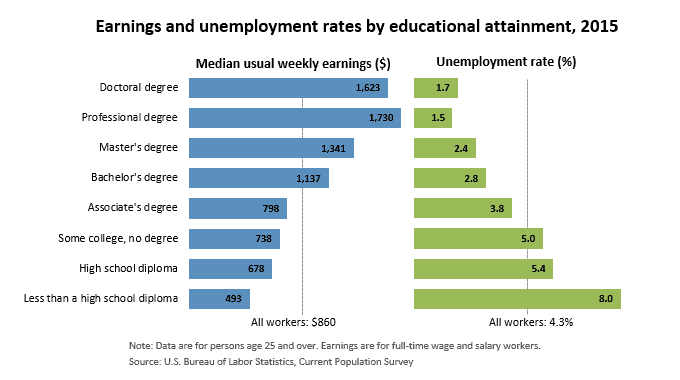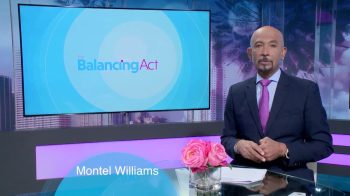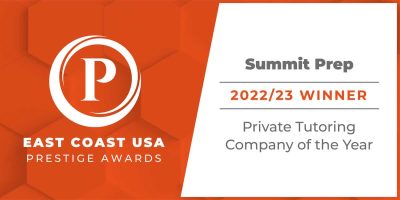In a prior post, I shared what I had learned about how to foster ambition (defined as the drive to excel and succeed). To achieve success, people need skill and knowledge. But the acquisition of skill and knowledge requires the desire to learn. In order to cultivate an appetite for learning, people need to be convinced that learning is meaningful, that it has value, is worthwhile, and has purpose. Purpose, therefore, is the foundation of learning, ambition, and success – it is, after all, why we do whatever we do. So, how do we convince students that all education has meaning and purpose?
As I mentioned in the previous post, some students will be sufficiently motivated by parental expectations and letter grades to learn and excel at school. But, not all students will be. And, even for motivated students, maybe they would be highly motivated if we could give them more reason to be so. I do not know about you, but I rarely had any teachers tell me why I should learn what they taught, except to get a good grade. Those teachers who convinced me of the “why” captivated my attention (they were also the most passionate). I believe that all education, no matter the subject, has purpose – a fact that I did not fully appreciate when I was in school and which I wish I had learned earlier. I have never regretted anything I learned (do you?), but I do regret not learning more. I will first explain why, generally, all education has purpose, but then I will get into more specifics on the value of the various subjects that we study.
Why all education is meaningful
Education for Survival and Success
In our modern economy, education provides not just the means to success, but the means to survival. First, we need to be able to provide for ourselves and satisfy our physical needs before pursuing, or even contemplating, larger goals and higher ideals. To paraphrase the
- How important is education for survival? Even after controlling for all other factors, on average, people who get more education live longer. In fact, according to the New York Times, “The one social factor that researchers agree is consistently linked to longer lives in every country where it has been studied is education.” One year of additional school extends life expectancy by 1.5 years. And, the most educated men live an average of 14 years longer (an 18% increase to length of life) than the least educated men in the U.S. For women, that gap is 10 years (12% increase to length of life).¹ Thus, education is literally a matter of life and death. Additionally, more education leads to better health, both physical and psychological, throughout life.
Though also impacted by income and other factors, people with more education have fewer chronic diseases (including arthritis, heart disease, lung disease, high blood pressure, and diabetes) and lower rates of disability. Thus, even beyond simply survival, education dramatically impacts our quality of life. As Benjamin Franklin proclaimed in “On True Happiness”: “Health of body, though so far necessary that we cannot be perfectly happy without it, is not sufficient to make us happy of itself.” In other words, although health does not guarantee happiness, lack of health almost entirely guarantees that we cannot enjoy great happiness. If we hope to be happy (which likely everyone does), then we should seek to sustain our health. Education is one of the surest methods to ensuring we can maintain healthy and happy lives, not to mention just stay alive.
- Education is also one of the largest determinants of income. As Steven Levitt points out in the “Freakonomics Goes to College” podcast, each extra year of education is worth about an 8% increase to lifetime earnings. That is a massive lifetime raise for one year of schooling. The graph below further emphasizes the latter point. On average, more education results in more income (except for a doctoral degree, which typically takes more time yet averages a lower income than a professional degree). Even after controlling for all other variables (income of parents, etc), education is still the primary determinant of a person’s lifetime earnings. We can also see the average monetary worth of these degrees. A bachelor’s degree is worth $1,364,000 (compared to only graduating high school). A Master’s degree: $403,000 (compared to only a bachelor’s degree). And, a professional degree: $1,380,000 (also compared to only a bachelor’s degree).²
- More education not only leads to more income, but also less unemployment.
Thus, education is the most important input to meet the demands of our most basic needs: health and employment. But, the importance of education extends beyond material necessities. Without it, we cannot fully understand ourselves or the world. We only get one life. To live it under a veil of ignorance, never understanding the purpose of it, would be a shame. In order to think critically about ourselves, others, and the world, we need a quality education. This critical thinking too is an engine for innovation and improvement, for ourselves and the world.
Education for Understanding Life
The worth of education extends far beyond meeting our physical needs. Plato’s Apology famously quotes Socrates as saying that “the unexamined life is not worth living.” Maybe that is a little harsh, but Socrates had an incredible impact on the world and died for what he believed, so his thoughts and beliefs are not to be taken lightly. We will get into the
For our longevity, our health, our happiness, our income, and our understanding of ourselves and the world, education is pivotally important.
Why students should be required to take a range of subjects
There is no way to fine tune the education system to fit the specific needs of each student. The best approach is to make education as broad as possible to expose people to different subjects yet also provide sufficient depth so that they can develop skill in studied subjects. Despite the impossibility of providing an individual education to each student, we also need students to take more than what interests them for three reasons:
1. People do not know what they will need for the rest of life. No one can foresee the future, so it is much better to be prepared. If you were going into battle (which, in 
2. People cannot know what interests them until they try out different subjects. For instance, I was apathetic to the study of Economics, until I took Economics. Then I LOVED Economics, but that would obviously have been impossible for me to know otherwise.
3. Not everything in life is fun. Even an enjoyable job has unenjoyable aspects. Sometimes you have to learn things you do not find interesting. Thus, practice at learning and working hard even when we do not want to do so is still incredibly valuable – it prepares people for life. Thus, no time spent on education, whether it interests a student or not, is wasted. Granted, if someone will become an artist, then learning Calculus might not be as useful to them in the long-run as time spent developing their artistic ability. But, that does not mean that time spent on Calculus was wasted time: 1) Learning it is still good practice at working hard when we do not want to, and 2) as I will explain, every academic subject is inherently worthwhile.
Why, specifically, every branch of education is worthwhile
As has been established and is apparent, education in general is necessary for attaining a reasonably good life, with respect to health and success. But, here are reasons that individual branches of education are valuable.
English
Language is the foundation of civilization. Without it, we could not have an organized society because we could not communicate. As such, there is no subject more important than one’s language.
The more intimately it is learned, the better one’s communication. And better communication leads to better relationships, both personally and especially professionally. Good communicators can say precisely what they intend, with subtleties to persuade, sympathize, or achieve almost any other intent. They can also better understand what others are saying and learn faster and more completely as well. As in all things, improving at reading and writing takes practice.
Language also sets the groundwork for learning almost all other disciplines: History, Sociology, Economics, Psychology, Philosophy, Anthropology, Law, Medicine, 
Mathematics
As a child, teenager, and young adult, I often thought and said, “Why do I have to learn this? I am never going to use this Math.” However, as they say, hindsight is 20/20.
First, I am surprised by how much Math directly helps me. Besides teaching Math to students, I use it in most excel documents for company record keeping, calculating pay/bonuses/incentives, figuring out revenue and profit increases, etc. Math is helpful for grocery shopping, budget calculating, understanding how to save well for retirement, avoiding unnecessary and harmful costs from interest on credit cards or other loans, comprehending risks and rewards, and even for work around the house. As can be seen in the example in this link, Math can be very helpful for life. It takes learning it first to see its applications, which, because academics prepare us for life, might not become evident until much later.
Secondly, Math is about more than the Mathematical operations. It is about the 
Thus, the ability to calculate and think Mathematically is directly helpful for life, and the knowledge of Mathematic’s importance in the world and in our lives gives us a clearer understanding of how the world works.
Sciences
All scientific knowledge helps us to better understand the world. Unless we are indifferent to our own existence, we should be fascinated by how life sustains itself (Biology), what makes up all matter and how it changes under different conditions (Chemistry), and the nature of matter as it moves through space and time (Physics).
1. Biology: The Greek word “bios” means “life” and “logos” means “study of.” The name of this subject alone indicates its importance. If we hope to understand living things, ourselves included of course, then we need to understand Biology. For some professions, such as doctors, Biology is of obvious importance. But, it is directly useful for all people as well. The more knowledge we have of it, the better positioned
2. Chemistry: Similarly, without this branch of education, we would miss fundamental understanding of the workings of the world and ourselves. For example, have you ever noticed that an occasional door will get stuck or rub more against its frame in summer? It does so because increasing temperature causes density to decrease (causes expansion). These changes to temperature and density are some of the 
3. Physics: Without it, we would not know the rules of motion and forces, such as 
There are many other branches of Science that help us understand the world. But, we can see even just from these three core Science subjects that they are essential to understanding our existence and how the world works.
Social Sciences
Again, this branch of knowledge enables us to understand the world from a distinct perspective. Without knowing history, we cannot understand the present. Without knowing about our government, we cannot understand our society, which in large part shapes us and our opportunities. Without knowing geography, we will have a limited view of the scope of the social and physical boundaries of the world.
History: I was not enthusiastic about learning History when I was in school. I felt lucky at the time that my high school’s largest shortcoming was in History and our classes in this subject were more-or-less a joke (group tests, almost no homework, etc.) However, not having a solid foundation in History is my single biggest educational regret. Again, hindsight is 20/20. How could I have known when I was 16 years old that I would know less History than most of the peers in my social group as an adult 
Closing Thoughts
We have seen that education generally and its specific subjects are worthwhile. But, if you are not convinced, the alternative is to change the system. If core subjects in school are a waste of time, then it is absolutely necessary that you do everything you can to change the system so that our country (and the world) does not waste trillions of dollars and countless hours on useless information (the U.S. alone spends over $600 billion per year on education).³ But, to enact that change, you are going to need a few things. Most importantly: you are going to need an education so that you can read, write, make concise and coherent arguments, and think. And, you are going to need an education so that people take you seriously. Thus, even if you hope to save the world from wasting its time and money on education, you still need a good education.
Education is truly amazing: longer and healthier life, more success, and more understanding of ourselves and the world. Every minute spent on education adds to the strength of the vessel (ourselves) that will carry us through life.
References:



 Though also impacted by income and other factors, people with more education have fewer chronic diseases (including arthritis, heart disease, lung disease, high blood pressure, and diabetes) and lower rates of disability. Thus, even beyond simply survival, education dramatically impacts our quality of life. As Benjamin Franklin proclaimed in “On True Happiness”: “Health of body, though so far necessary that we cannot be perfectly happy without it, is not sufficient to make us happy of itself.” In other words, although health does not guarantee happiness, lack of health almost entirely guarantees that we cannot enjoy great happiness. If we hope to be happy (which likely everyone does), then we should seek to sustain our health. Education is one of the surest methods to ensuring we can maintain healthy and happy lives, not to mention just stay alive.
Though also impacted by income and other factors, people with more education have fewer chronic diseases (including arthritis, heart disease, lung disease, high blood pressure, and diabetes) and lower rates of disability. Thus, even beyond simply survival, education dramatically impacts our quality of life. As Benjamin Franklin proclaimed in “On True Happiness”: “Health of body, though so far necessary that we cannot be perfectly happy without it, is not sufficient to make us happy of itself.” In other words, although health does not guarantee happiness, lack of health almost entirely guarantees that we cannot enjoy great happiness. If we hope to be happy (which likely everyone does), then we should seek to sustain our health. Education is one of the surest methods to ensuring we can maintain healthy and happy lives, not to mention just stay alive.







